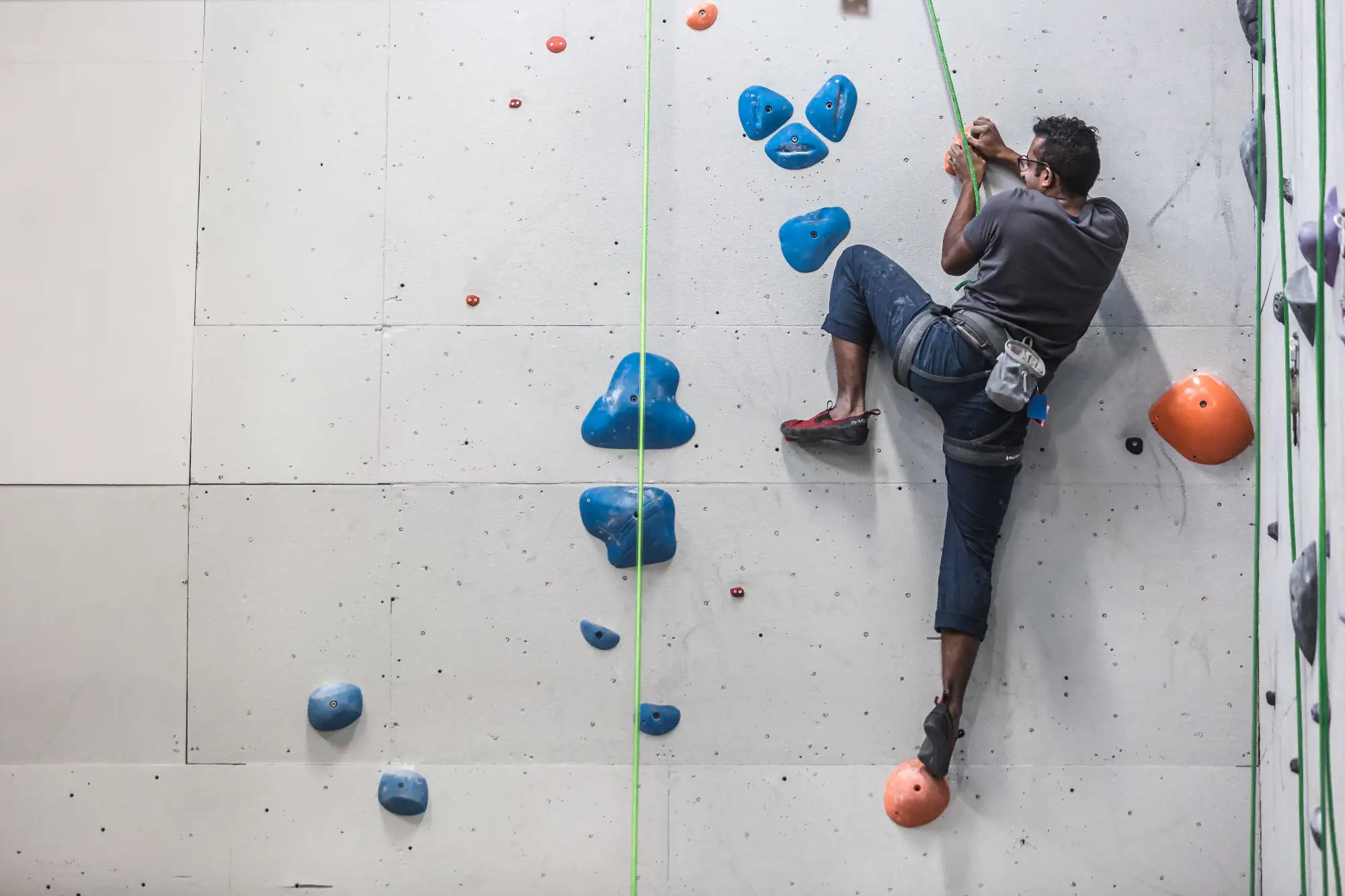Indoor rock climbing is more than just a physical activity—it’s a mental game that challenges your focus, resilience, and problem-solving abilities. While many people are drawn to climbing for the fitness benefits, they often discover unexpected gains in mental toughness along the way. Whether you’re navigating a tricky bouldering problem or overcoming fear on a tall top-rope route, climbing demands mental clarity and emotional control. Let’s explore the powerful ways indoor rock climbing enhances mental strength and sharpens your focus.
1. Builds Mental Resilience Through Failure
Climbing routes are designed to test your limits, and falling is part of the process. These frequent setbacks help build resilience as climbers learn to embrace failure as a stepping stone to progress. Over time, the habit of getting back on the wall despite repeated falls translates into greater emotional toughness and persistence in everyday life.
2. Enhances Problem-Solving Skills
Every climbing route, or “problem,” requires a unique strategy. You need to assess holds, plan movements, and adapt mid-climb—all in real time. This process strengthens critical thinking and decision-making skills. As climbers face increasingly complex challenges, their ability to think creatively and analyze situations improves both on and off the wall.
3. Increases Mind-Body Awareness
Climbing trains you to listen to your body and make precise movements. It demands balance, timing, and control—skills that are rooted in self-awareness. As you improve, you become more in tune with how your mind and body communicate, which can enhance coordination, reduce stress, and even benefit other areas of fitness.
4. Teaches Patience and Focus
Unlike many fast-paced workouts, climbing requires slowing down and thinking through each move. Whether you’re projecting a difficult bouldering route or planning your next step on a lead climb, staying patient is key to success.
Here are six ways indoor climbing cultivates better focus and patience:
- Encourages slow, deliberate movement
- Requires attention to grip and foot placement
- Promotes breathing control under pressure
- Demands constant mental presence
- Teaches you to pause and reassess mid-route
- Helps reduce impulsive or rushed decisions
By learning to move with intention and awareness, climbers train their brains to maintain concentration and resist distractions—a skill that’s highly transferable to daily life.
5. Builds Confidence and Overcomes Fear
Fear is a natural part of climbing, whether it’s fear of heights or fear of falling. Indoor climbing provides a safe space to confront those fears gradually. As climbers face their discomfort and take calculated risks, they build confidence—not just in their physical ability, but in their mental capacity to handle stress and uncertainty. Over time, this courage extends beyond the wall, empowering climbers in other areas of life.
6. Encourages a Growth Mindset
Climbing is inherently progressive. You start with beginner routes and slowly advance to harder climbs, often failing many times along the way. This creates the perfect environment to develop a growth mindset—the belief that ability can improve through effort and learning.
Embracing this mindset helps climbers stay motivated, view challenges positively, and push through limits. The lessons learned in climbing—persistence, adaptability, and reflection—support mental growth and lifelong learning.
Conclusion
Indoor rock climbing is a powerful way to strengthen your mind while challenging your body. From sharpening focus and improving problem-solving to building resilience and managing fear, the mental benefits are just as valuable as the physical ones. Whether you’re new to climbing or a seasoned climber, each session on the wall offers an opportunity to grow not just stronger—but also more focused, calm, and mentally agile. The next time you climb, remember: you’re not just training your muscles—you’re training your mind.
